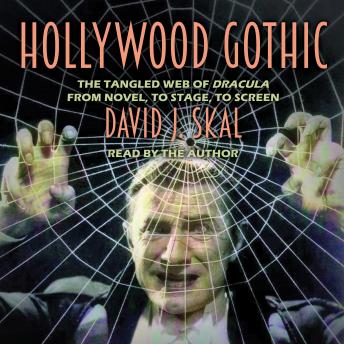2018 School Spending Survey Report
Hollywood Gothic: The Tangled Web of Dracula from Novel to Stage to Screen
COPY ISBN
 Unfortunately, Bram Stoker did not live to see the success of his 1897 novel Dracula; he certainly could not have envisioned the juggernaut of plays, films, and merchandise that his iconic work would inspire. Cultural historian and critic Skal examines Stoker’s influences and legacy (including the stage and film adaptations of Dracula). A pivotal drama centers around Stoker’s widow, Florence, who guarded his work fiercely, suing the makers of the 1922 German film Nosferatu (and attempting to have copies of it destroyed), as well as objecting to virtually every attempt made to produce it. The author thoroughly details the making of the 1931 Hollywood film Dracula, directed by Tod Browning, and devotes a chapter to the Spanish version, which was filmed simultaneously (he attests that the latter is the superior of the two in technical quality). Every major participant in the productions is scrupulously detailed. Finally, he explores more recent variations of the vampire legend: the British Hammer films, the 1979 Dracula with Frank Langella, Francis Ford Coppola’s 1992 version, and various comedic riffs. Skal’s excellent narration is sharp, commanding, and highly informative.
Unfortunately, Bram Stoker did not live to see the success of his 1897 novel Dracula; he certainly could not have envisioned the juggernaut of plays, films, and merchandise that his iconic work would inspire. Cultural historian and critic Skal examines Stoker’s influences and legacy (including the stage and film adaptations of Dracula). A pivotal drama centers around Stoker’s widow, Florence, who guarded his work fiercely, suing the makers of the 1922 German film Nosferatu (and attempting to have copies of it destroyed), as well as objecting to virtually every attempt made to produce it. The author thoroughly details the making of the 1931 Hollywood film Dracula, directed by Tod Browning, and devotes a chapter to the Spanish version, which was filmed simultaneously (he attests that the latter is the superior of the two in technical quality). Every major participant in the productions is scrupulously detailed. Finally, he explores more recent variations of the vampire legend: the British Hammer films, the 1979 Dracula with Frank Langella, Francis Ford Coppola’s 1992 version, and various comedic riffs. Skal’s excellent narration is sharp, commanding, and highly informative.
VERDICT Well-researched and highly entertaining, a must-have for film collections.
ALREADY A SUBSCRIBER? LOG IN
We are currently offering this content for free. Sign up now to activate your personal profile, where you can save articles for future viewing




Comment Policy:
Comment should not be empty !!!